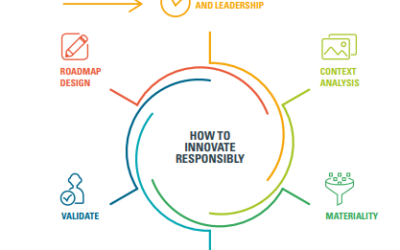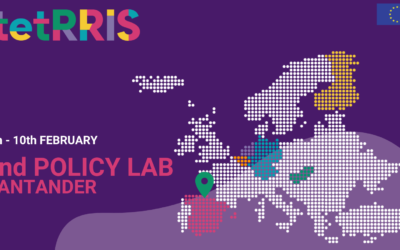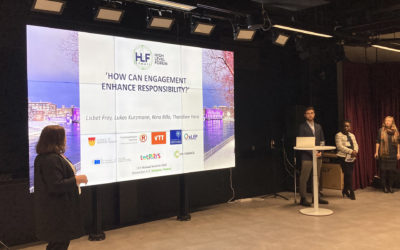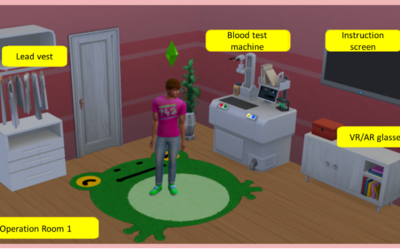How to define it
Responsible Research & Innovation (RRI) is an approach to research & innovation (R&I) that anticipates and assesses its potential implications and societal expectations of it in order to make inclusive and sustainable. RRI has been used in the Horizon 2020 programme to group cross-cutting concepts of societal aspects of science and innovation within the objective of the Science with and for Society (SwafS) agenda. It is also set to play a major role in the Horizon Europe programme.
What role should it play in R&I
RRI can assist in managing the relations between different Quadruple Helix stakeholder groups, for example between civil society and those running R&I programmes. It is an effective solution which allows for a transparent and interactive process in which social and different actors, both those responsible and not responsible for innovation, become mutually responsible for the innovation process. It achieves impact through allowing sufficient incorporation of scientific and technological advances in our society.
Six keys to rule them all
RRI supports advanced R&I strategies. To help embed it into the way researchers and innovators work, the five key themes have been defined for policymakers to consider, usually referred to as the RRI keys:
- Gender equality: tackles gaps between women and men, for example by ensuring that gender dimensions are taken into consideration in R&I, decision-making, the allocation of funding, and in the makeup of teams and organisations.
- Open access: attempts to make science transparent and accessible. It stresses that the results of publicly funded research (publications and data) should be made freely accessible for public use online.
- Citizen engagement: stresses that the public, including civil society organisations, should jointly participate in the R&I process, rather than the traditional pillars of researchers, industry, and policy makers which have traditionally fed into it.
- Science education: confronts the challenge of better preparing future researchers and other social actors, providing them with the tools and knowledge necessary to participate fully in the R&I process, as well as equipping citizens to take part in forming science policies.
- Ethics: requires R&I to respect fundamental rights and the highest ethical standards in order to guarantee greater social relevance and greater acceptance of the results of research and innovation.
Why Responsible Research and Innovation
R&I has improved our world and our lives in many ways. However, alongside the positive impact on the material and physical well-being of society, science and technology sometimes create new risks and ethical dilemmas. They may generate controversy and fail to solve problems. In the worst-case scenarios often presented in science fiction, they may lead to societal breakdown or apocalyptic wars between machines and humans. RRI answers these challenges by engaging all actors (from researchers and innovators to governments and citizens) through inclusive and participatory methodologies. To be effective, the participation takes place at all stages of the process and at all levels of governance of R&I (from program planning, through design, implementation, and evaluation). Research and innovation will address societal challenges and be aligned with the values, needs and expectations of the general public. This is not just an ethical or societal issue. It is about improving scientific production, diversifying research programs, and considering the complexities of the real world.
How TetRRIS will implement territorial RRI
Our understanding of RRI is tentatively twofold: On the one hand, we will use the definition of the European Commission implementing the practice of RRI in terms of the five RRI dimensions; public engagement of lay citizens and stakeholders, enabling easier access to scientific results, giving due attention to questions of gender and ethics in R&I processes, and providing formal and informal science education. A more academic definition of RRI – or Responsible innovation – has usually included four dimensions; anticipation, reflexivity, inclusion and responsiveness (Stilgoe et al. 2013). TetRRIS project makes use of these both and several other approaches, which advance responsibility related thinking and action in research and innovation.
Further information
For more detailed information on RRI, TetRRIS highly recommends taking a look at the explanations and videos on the website of RRI Tools, an initiative that serves to inform in detail about all aspects of RRI.
Hits: 3257











0 Comments